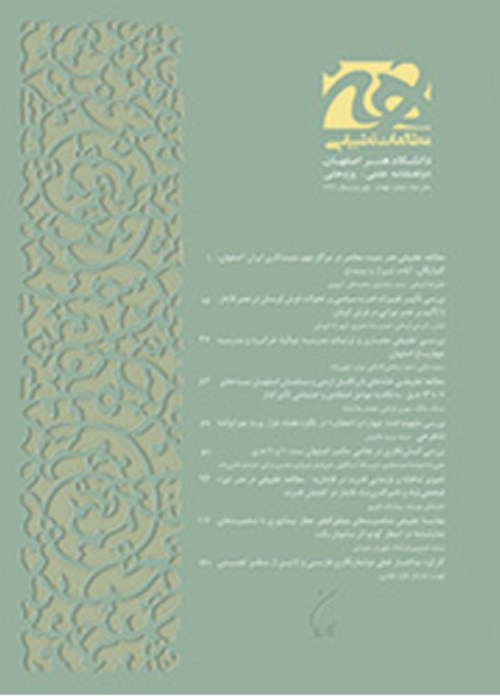Comparative Study of Hegel's Model of Historical Progress with the Necessary Emergence nof the " new art history" in Contemporary Era*
Author(s):
Abstract:
The “new art history” is a radical, critical and social interdisciplinary academic field which refers to historical, social, political and institutional “context-based” approaches formed in contrast with the idea of “art for art’s sake” and 20th century formalism (1875-1968). Formalism itself was born in opposition to Romanticism, and rejected the emphasis on content and context. It led at last to another aesthetic revolution which was a result of liberation from aesthetic despotism. The “new art history “arose in 1968 within those notions of “art for society” developed, however in an unfinished and therefore unnoticed form, in the early 20th century by thinkers such as Arnold Hauser. The “new art history” followed their path because a tendency for replacing art in political and social contexts, in post-cultural studies such as post-Marxist, post-feminist, post-colonialist and analytical psychological theories, was indeed motivated by the idea of “Zeitgeist”. The methodology of the present study is based upon analysis, interpretation and evaluation of certain ideas, approaches and theories under the same titleas well as a new comparative/analytical point-of-view based on Hegel’s dialectic interpretation. Also adifferent comparison will be made between two important historical periods, in case of contrasting with thesis or Formalism of 20th century and antithesis or considering content or context-based approaches in the 21st century, making a new synthesis of content and form in the contemporary world. The present study aims to prove manifestation of historical self-awareness of artists (philosophers, historians and critics) and entering into history domain (from comparative points of view which here is paying attention to social aspects of art) resulted from awareness; in position of knowledge and wisely determination appearing through a historical process with passing from deliberately experience way (based upon thought and not merely sense and form). In this way, a historical fate leads to a historical change in arts.
Keywords:
Language:
Persian
Published:
Journal of Motaleate-e Tatbighi-e Honar, Volume:2 Issue: 3, 2013
Page:
35
magiran.com/p1117100
دانلود و مطالعه متن این مقاله با یکی از روشهای زیر امکان پذیر است:
اشتراک شخصی
با عضویت و پرداخت آنلاین حق اشتراک یکساله به مبلغ 1,390,000ريال میتوانید 70 عنوان مطلب دانلود کنید!
اشتراک سازمانی
به کتابخانه دانشگاه یا محل کار خود پیشنهاد کنید تا اشتراک سازمانی این پایگاه را برای دسترسی نامحدود همه کاربران به متن مطالب تهیه نمایند!
توجه!
- حق عضویت دریافتی صرف حمایت از نشریات عضو و نگهداری، تکمیل و توسعه مگیران میشود.
- پرداخت حق اشتراک و دانلود مقالات اجازه بازنشر آن در سایر رسانههای چاپی و دیجیتال را به کاربر نمیدهد.
In order to view content subscription is required
Personal subscription
Subscribe magiran.com for 70 € euros via PayPal and download 70 articles during a year.
Organization subscription
Please contact us to subscribe your university or library for unlimited access!


